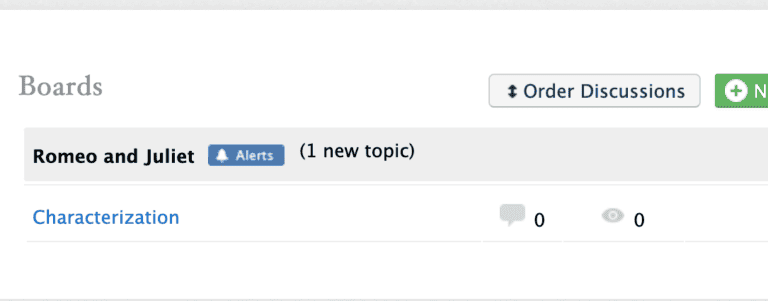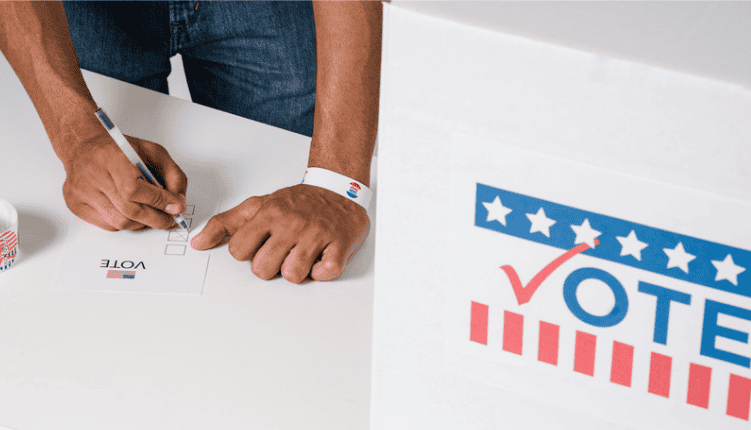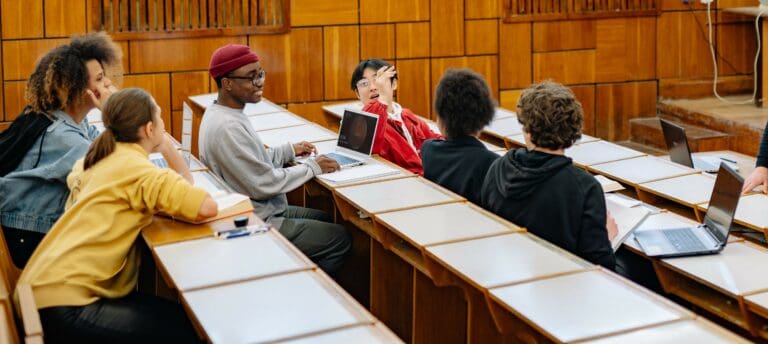5 Takeaways from Fall 2023 R.E.A.L. Cycle 1 Data
Over 2,000 students in grades 6-11 responded to the student survey we sent following the first R.E.A.L.® cycle of the 2023-2024 school year. The results were fascinating! While we saw some expected areas of growth – we usually see students master “Excerpting” early, and we did once again! – we also noticed some surprising patterns and gleaned insights from new questions we included in this year’s survey.
Here are five big takeaways of what we’re seeing so far this year.
Takeaway #1: Discussion builds comfort with changing your mind
We know it can feel fraught for students to admit to their peers that they’ve changed their minds about a particular topic. As teachers, though, we know how frequently good discussions can prompt new ideas, showcase new perspectives, and combat rigidity of opinions. We know that when a student talks about how their mind has changed as a result of discussion, that student is demonstrating a new depth of thinking, empathy, and reflection.
After one R.E.A.L.® cycle of three discussions, students reported higher levels of comfort in changing their minds – on average, an increase of 10 percentage points. Girls, in particular, gained comfort in doing so, with a nearly 12% jump.

Takeaway #2: It’s not so easy to come up with questions to ask in discussion
Last year, our survey asked students to report on their comfort level asking a question during class discussion. We were eager to learn what students were saying, because we’d noticed something interesting: teachers were telling us that students rarely asked questions unless they were explicitly focusing on it as part of their goal-setting process, but students were reporting fairly high levels of comfort in asking questions. So, what was going on? Why were students saying they felt comfortable asking questions – but not actually asking them in practice?
This year, we asked students not only to report on their general comfort asking questions, but on their confidence in coming up with a question to ask. When we looked at those numbers side-by-side, the gap was clear! Although students may say they are comfortable asking questions during discussions (65% say they are comfortable doing so), they admit it can be tough to come up with a question to ask. Indeed, just 18% of students feel confident in their ability to come up with a question, even after one cycle of R.E.A.L.®
Takeaway #3: Excerpting improves early!
Traditionally, we see an early jump in students’ confidence Excerpting – i.e., their comfort in gathering evidence and using their notes in their writing. This makes sense, as D.Q. Prep tends to be a big focus in the early days of a class’ journey with R.E.A.L.® This year was no exception, and we saw a huge jump in students’ comfort levels in using evidence during discussion – which will continue to help them throughout the rest of the school year.

Takeaway #4: Discussion helps students feel really listened to
Although a majority of students surveyed (60%!) already reported feeling like their classmates listened to them during discussion – a sign that R.E.A.L® schools are already doing amazing work in helping students feel heard – we saw that number jump to 81% (a 35% increase!) after just three discussions.
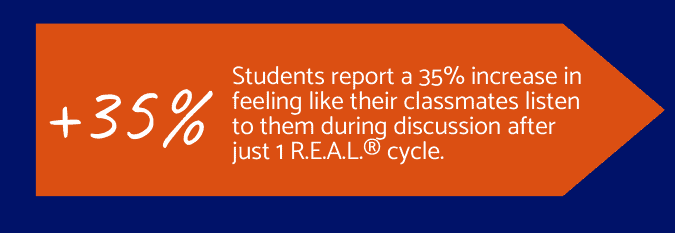
Takeaway #5: Students are starting to build independence
One of the habits we see students practicing from the earliest days of their R.E.A.L. ® programming is L2 (or L* for R.E.A.L.® Junior students): Listening to Facilitate. This type of listening helps students build the important skills of keeping track of time, waiting for the conversation to come to a natural stopping point before taking notes, and ensuring that everyone has a chance to speak. These practices pay off in spades, as they ultimately enable students to lead their own discussions without needing their teachers to facilitate at every step. By the end of Cycle 1, we saw that students had made promising strides in building independence regarding class discussion. Over 57% of students already felt like the teacher didn’t need to be the one to facilitate discussion for it to feel safe – an 81% increase from how they reported feeling pre-R.E.A.L.®
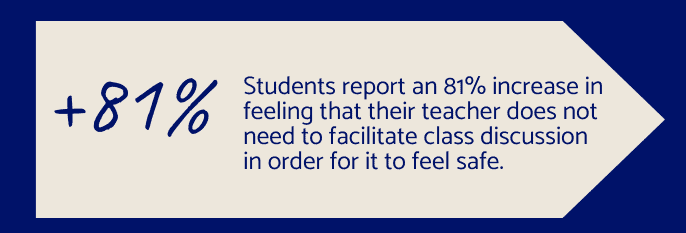
We are always eager to gain fresh insights into what’s really happening in our classrooms and in students’ hearts and minds. We’ll continue to share our analysis of new data, so we can keep improving our programming for each and every student who participates.
Want to learn more about how R.E.A.L.® can help your students gain discussion skills and confidence? Reach out to our team today!

